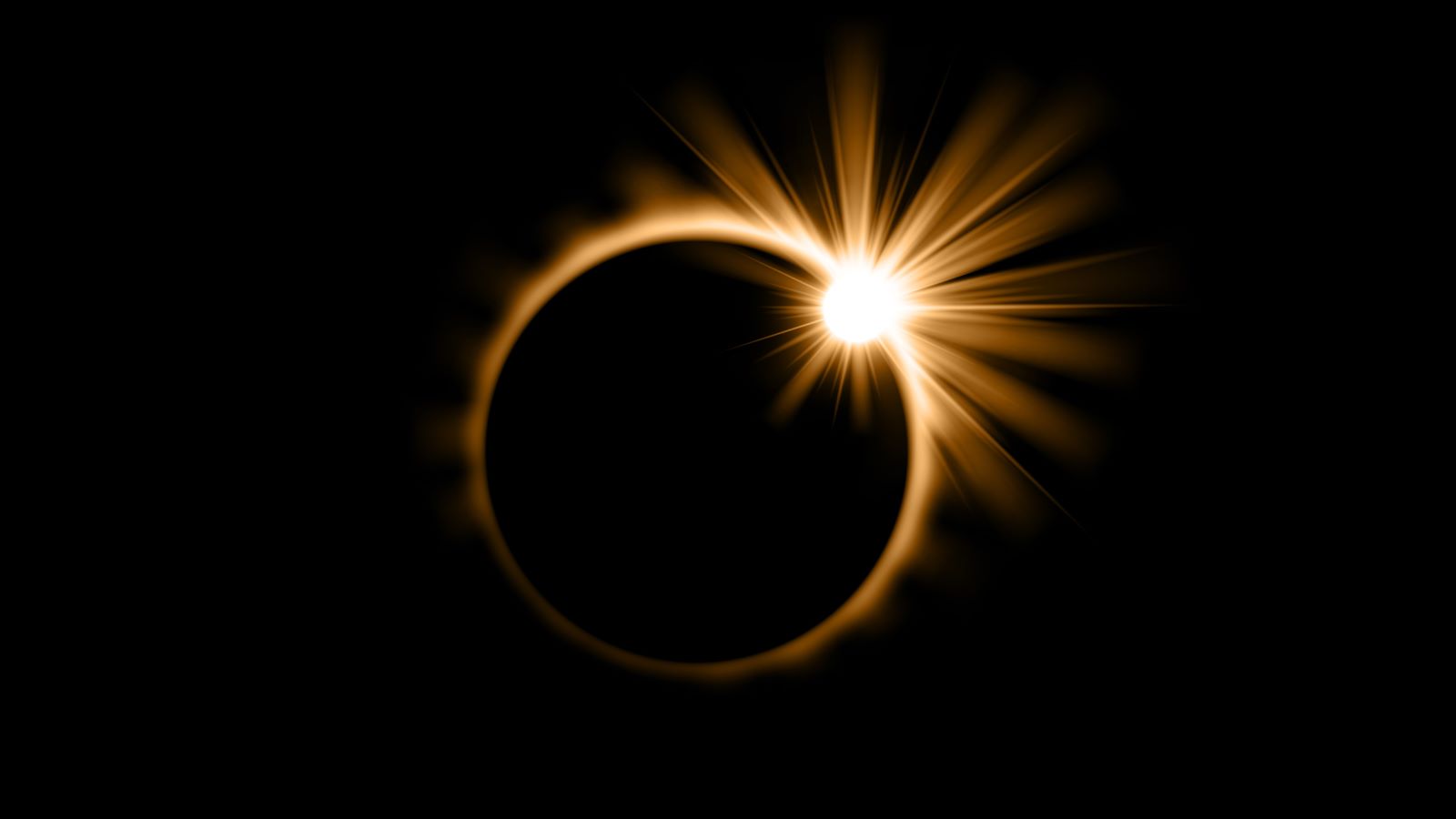<< Back
How to Look at the Solar Eclipse Safely, According to an Ophthalmologist

April 05, 2024
On Monday, April 8, 2024, the moon will briefly move in front of the sun, blocking its light and creating a shadow on the Earth.
If you’re planning on watching, you probably want to remember the solar eclipse forever — but not because of permanent eye damage.
We asked Alan Solinsky, MD, an ophthalmologist with Hartford Hospital Eye Surgery Center, for tips on how to safely look at the eclipse.
Why shouldn’t you look at the solar eclipse directly?
When the moon moves in front of the sun, your eyes will dilate to let more light in, like it does in the evening. And many of the eye’s natural defenses against damage, like blinking and pupil contraction, won’t happen.
The end result can be pretty serious damage to your eye.
“You can damage the fovea, the most sensitive portion of the center of the eye,” answers Dr. Solinsky.
It can also cause solar retinopathy.
“This happens when damaged tissue accumulates in the fovea,” he explains. “It could become a scar and lead to the total loss of central vision. It could also lead to a scotoma (blind spot) or distortion known as metamorphopsia where straight lines become bent.”
> Want more health news? Text StartHere to 85209 to sign up for text alerts
5 tips to look at the solar eclipse safely.
- Use certified solar viewing glasses. If viewing the eclipse directly, follow NASA’s recommendation to protect your eyes from harmful solar radiation. Rely on solar filters certified by the International Society of Organization (ISO) 12312-2 standard.
- Consider safe methods of indirect viewing. You can look online for tips on making a safe projector/device to project the eclipse onto a surface.
- Keep a close eye on the kids. This younger crew may want to look right into the sky, so they need your supervision (and proper eye protection) during the eclipse. Even indoors, keep small children and pets away from windows facing the eclipse.
- Take eye breaks. Although you may not want to miss a second of the eclipse, pace yourself. Not only should you not stare continuously at the sun (even with eclipse glasses), but you’ll also want to prevent eye strain.
- Perfect (and protect) the perfect photo. Make sure your camera has a solar filter to prevent damage to your eyes and camera before you take a snap.
Avoid these 5 mistakes when viewing the solar eclipse.
- Don’t look directly at the sun unprotected. If you don’t have the right glasses or protection, you can hurt your eyes (possibly permanently) if you stare at the sun during a solar eclipse.
- Don’t use damaged glasses or viewers. Only intact items can help protect your eyes, so toss anything that doesn’t look right.
- Don’t take off your protection too soon. Keep your solar viewing glasses on until the eclipse is over. The only exception is if you are in the path of totality during the totality phase.
- Don’t use binoculars or telescopes without protection. These concentrated light sources can cause potentially severe eye damage, and you need proper filters and protective eyewear.
- Don’t watch the eclipse through your phone. It won’t protect your eyes, and you must wear protective eyeglasses. If it’s the stellar image you’re after, rely on your camera with a solar filter.
> Related: What Happens If You Look At The Sun During A Solar Eclipse?
If you accidentally look at the eclipse without protection, see a doctor.
It’s important to check in with an eye doctor right away if you’re noticing any symptoms.
“If you experience tearing, pain or photophobia (sensitivity to light and loss of central vision), see your eye doctor within two days after exposure,” says Dr. Solinsky.
Your doctor will examine your retina for abnormal accumulation of material in the fovea. They can confirm the diagnosis and damage through various tests and scans.
Most solar retinopathy resolves on its own within 1-6 months, but some people may continue to have a scotoma (blind spot) or metamorphopsia. Steroids haven’t proven successful in the past, and there are currently no widely known treatments.
“To avoid these complications, look at the solar eclipse safely,” says Dr. Solinsky. “I wouldn’t recommend pinholes because it’s easy to use unsafe ones with the pinholes too far apart. Stick with certified protection glasses and these simple tips to protect your eyes during this exciting event.”